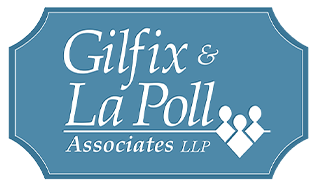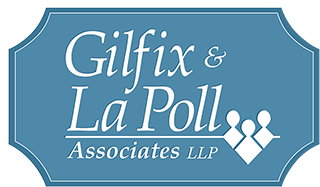
COVID-19 Resources in California
The ongoing coronavirus pandemic has changed life as we know it. COVID-19 has swept through the United States, and California is among the states that have been hit the hardest in terms of the number of infections and deaths.
Gov. Gavin Newsom has enforced strict stay-at-home guidelines since mid-March to help slow the spread of the virus so that hospitals and other medical facilities across the state do not get overwhelmed with COVID-19 patients. Schools and nonessential businesses have been closed, while public gatherings have been banned. People are only allowed to go outside for essential reasons such as grocery shopping or other necessities, as well as some exercise close to home while following social distancing measures.
While the novel coronavirus has impacted the life of every Californian, health officials have said that older adults and those with existing illnesses are particularly vulnerable to serious complications from the disease. As a Palo Alto-based law firm that focuses on estate planning, elder law and special needs planning, Gilfix & La Poll Associates LLP understands that the health and financial implications of COVID-19 are likely to leave people feeling anxious about the future. Below we are sharing some useful information about COVID-19 as well as a list of resources that we have assembled for the community at large. Gilfix & La Poll is here to address your concerns and help you and your loved ones during this challenging time. Together, we will get through this.


What is COVID-19?
COVID-19 is the disease caused by a novel, or new, coronavirus. The World Health Organization has classified the virus as a pandemic as it has spread throughout the world. The coronavirus is infectious and primarily spreads from person to person. COVID-19 symptoms can range from mild to severe. In some cases, there may be no obvious symptoms.
How does COVID-19 spread?
Research shows that the coronavirus is transmitted more easily than influenza but is not as contagious as measles. The virus mainly spreads via person-to-person contact through respiratory droplets that emerge when an infected individual sneezes, coughs or talks.
There is a possibility that a person may contract COVID-19 by touching a contaminated object or surface, and then touching their nose, mouth or eyes. Because the disease is new, there is still a lot that we do not know about it.
Symptoms of COVID-19
There are many different symptoms associated with COVID-19. They can range from mild to severe. Certain COVID-19 symptoms share similarities with the flu, including a fever and dry cough. Here are some of the known novel coronavirus symptoms:
- Cough
- Fever
- Chills
- Headache
- Muscle pain
- Sore throat
- Shortness of breath or difficulty breathing
- Loss of smell or taste
Some patients have also had a runny nose, nasal congestion or diarrhea. If you are experiencing any of the above symptoms, you should isolate yourself from others and contact a medical professional.
-
Certified Specialists in Estate Planning & Elder Law
-
Co-Founder of the National Association of Elder Law Attorneys
-
Pioneers in Elder Law & Estate Planning
-
Hundreds of Millions of Clients' Dollars in Taxes Saved
-
Thousands of Families in the Community Served
-
Over 35 Years of Serving the Bay Area
Tips for staying safe and protecting yourself from COVID-19
There are currently no vaccines or medications to prevent COVID-19. Scientists around the world are working to find possible treatments. In the meantime, the best way to protect yourself from the illness is to avoid being exposed to the coronavirus. The Centers for Disease Control and Prevention (CDC) has recommended the following everyday safety measures below. These actions are especially important for older adults and individuals with underlying medical conditions.
- Wash your hands frequently with soap and water for at least 20 seconds. Use an alcohol-based sanitizer if soap and water are unavailable.
- Avoid touching your face with unwashed hands.
- Routinely clean and disinfect high-touch surfaces like doorknobs, light switches, furniture, faucets, keyboards and smartphones.
- Wear a face mask or a cloth covering in public places.
- Practice social distancing. Stay around 6 feet away from others.
- Avoid close contact with people who are sick.
- Cover your nose and mouth with tissue or the inside of your elbow when sneezing or coughing.
- Stay home if you are sick except to seek medical treatment.
Guidance for high-risk groups
There are certain population groups that may be more vulnerable to falling severely ill from the coronavirus and developing complications. Adults aged 65 and older, as well as those who live in nursing homes or other long-term care facilities fall in the high-risk group. People of any age who are immunocompromised or have pre-existing health conditions such as diabetes, asthma, lung disease or heart disease should also be extra cautious.
Current evidence shows that children do not seem to be more vulnerable to COVID-19 than adults. However, there is some research that indicates the majority of children who were hospitalized for COVID-19 had at least one underlying medical condition such as lung disease, heart disease or a weak immune system. If you are in a high-risk group, you should:
- Stock up on supplies such as food and medications.
- Wash your hands often.
- Maintain physical distance between yourself and others.
- Stay home as much as possible if there is an outbreak in your community.
- Watch for symptoms. If you fall ill, stay home and call your health care provider.
Special needs children and COVID-19
There is still a lack of information regarding the specific medical conditions that may put children at increased risk of severe illness from COVID-19. Families that have a child with an underlying health condition or special needs can take some additional steps along with following CDC recommendations.
- Choose backup caregivers in case you or other regular caregivers get sick and are unable to care for your child.
- Try to stock up on at least a month of medications and medical supplies. Speak to your child’s health care provider about available options.
- Find out how your child’s doctors, therapists and other health care providers can be contacted during the coronavirus pandemic. For instance, some may offer telemedicine visits.
- Review your child’s health care plans and familiarize all caregivers, including backups, with the plans.
- If you do not have care plans, note down important information about your child’s medical conditions, how to manage them, how to get in touch with doctors, allergies, medication lists, special needs and details about daily routines that are key to supporting behavioral and emotional wellbeing.
- If possible, reach out to others for help in running essential errands. Sheltering in place with your child can help lower the stress of social distancing protocols and face covering requirements when going outside.
- Many of the helpful organizations and support groups you have relied on in the past are likely to have online resources to help families address specific concerns related to COVID-19.
Planning for emergencies
If your special needs child is displaying COVID-19 symptoms, contact their doctor. Call 911 for immediate medical attention if your child has new or worsening emergency warning signs such as difficulty breathing, persistent chest pain, confusion or bluish lips. If someone else in your home contracts COVID-19, contact your health care provider to obtain specific advice on how to protect your child.
During the ongoing crisis, your child may need care for underlying or complex medical conditions that are not related to the coronavirus. Do not delay getting emergency care out of fear of virus exposure at health care facilities. Many emergency departments have implemented plans to protect people from COVID-19.
How California is responding to COVID-19
On March 19, California became the first state to issue a stay-at-home order for its residents in an effort to limit the spread of COVID-19. Gov. Newsom has implemented a four-stage plan to gradually reopen the state while preserving public health. For information on the latest executive orders he has signed, visit https://www.gov.ca.gov/category/executive-orders/. Here are some additional COVID-19 resources:
- California coronavirus response website
- California essential employee FAQs
- Outdoor recreation FAQs
- Stay-at-home FAQs
With the coronavirus crisis evolving daily, it is important to keep up with the latest information from government and health officials. Here are some helpful links:
Resources for California families
The coronavirus pandemic has affected California residents in many different ways. Some are dealing with health challenges while others are facing unemployment or struggling to care for children. No matter the individual circumstances, we are all in this together. Here are some resources that families can access:
Student Loans
Many student loan borrowers will see their interest rate cut to zero under newly passed measures. Some will have their loans placed into an emergency forbearance for the next few months. Certain qualifying individuals will not have to make any payments. Find out more by visiting the Federal Student Aid webpage or by contacting your loan provider.
Stimulus Checks
The U.S. Treasury started issuing stimulus checks in mid-April. Eligible Americans will receive $1,200 each and $500 per child under 16 years of age. However, certain income limits apply. To learn more about the stimulus checks, visit the IRS website. You can check the status of your payment here.
Domestic Violence
California’s stay-at-home order means that people are spending more time together without the privacy or space they are accustomed to. For some family members involved in abusive relationships, the circumstances created by the coronavirus can turn the home into a dangerous place. Here are some ways to get help:
- California judiciary website: information on how to file a restraining order and where to find shelter
- National domestic violence hotline: 1-800-799-7233
- If you are in immediate danger, call 911 and report the abuse to the police right away.
Public Benefits and Food Security
The state government has made some changes to how public benefits will be administered during the coronavirus crisis. For instance, people can now apply for food stamps online on the CalFresh website, while the Employment Development Department has expanded its website with more resources for low-income individuals and families.
- The WIC program can now be accessed online and by phone at 1-888-942-9675.
- The California Association of Food Banks has many locations throughout the state. Visit the organization’s website to learn more.
- For help with housing due to homelessness during the pandemic, visit this government website.
Assistance for California Workers and Small Businesses
Millions of state residents have lost their jobs with many businesses being forced to shut due to COVID-19. People have been left struggling with financial problems on top of the anxiety and stress that the coronavirus has already created. State and federal officials are taking steps to help workers through these difficult times. For instance, the Families First Coronavirus Response Act requires employers to provide paid leave to workers impacted by COVID-19. Here are some resources you can turn to for help with employment-related challenges:
- The California Employment Development Department website has information for those seeking unemployment benefits during the coronavirus pandemic
- California Labor and Workforce Development Agency COVID-19 website.
- The U.S. Small Business Administration’s (SBA) paycheck protection program provides employers with loans to cover payroll during the pandemic. Learn more about the program here.
- Congress has relaxed restrictions on getting an Economic Injury Disaster Loan to help small business owners who are struggling during the pandemic due to no fault of their own. For more information on these low-interest loans, visit the disaster loan assistance section of the SBA website.
- There is additional support available for small businesses. See the guide to the CARES Act on the SBA website to learn more.
We are here for you during the coronavirus pandemic
At Gilfix & La Poll, we recognize that you and your loved ones may be facing a number of challenges during this unprecedented time. We will do whatever we can to support you. Our lawyers and staff are available to discuss your estate planning and special needs planning concerns. While we have modified our operations for health and safety reasons in light of the coronavirus pandemic, Gilfix & La Poll can still accommodate select in-person meetings, all phone meetings, and video conferences.



